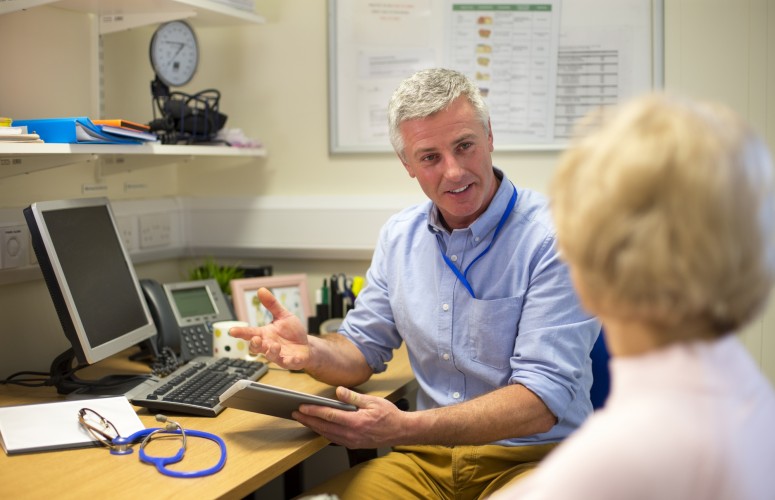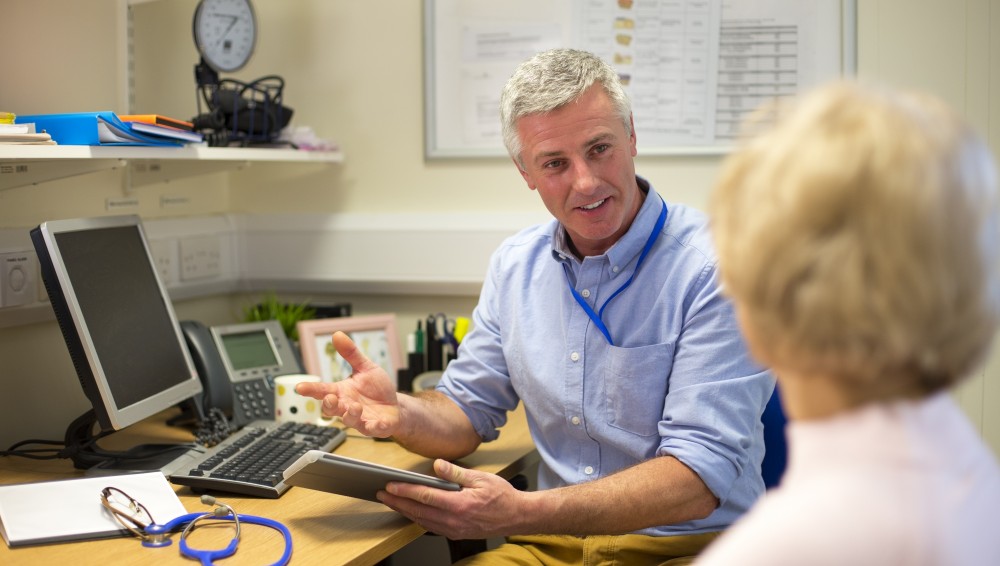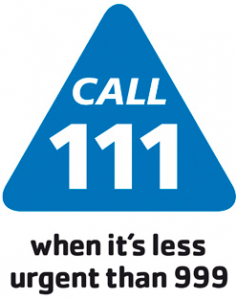Leeds Community Healthcare NHS Trust is committed to a zero tolerance approach to managing healthcare associated infections such as meticillin-resistant Staphylococcus aureus (MRSA) and Clostridium difficile (C Diff).
The Infection Prevention and Control team works closely with all health and social care partners in Leeds to share evidence-based practice and expertise; develop and implement policies to prevent, control and reduce healthcare associated infections; carry out training and audit and offer specialist advice and support.
GP practices need to ensure that there are adequate arrangements in place for infection prevention and control and that they are compliant with the Health and Social Care Act (2008). Patients must be cared for in a safe, clean environment, where the risk of HCAIs is kept as low as possible. Follow the links on this page to find help and guidance.
What you need to know about C.diff
All health care providers in Leeds are committed to reducing C.diff infection.
Find information below about C.diff and the steps you can take to protect yourself.
What is C.diff?
Lots of different bacteria live naturally in the gut. In about 3% of healthy adults this includes C.diff. It rarely causes any problems in healthy people.
When does C.diff cause a problem?
C.diff only causes a problem when something alters the natural balance of germs in the gut causing the body’s defences to become weakened. Antibiotics used to treat other illnesses can sometimes cause this which then allows C.diff germs to increase causing irritation of the bowel.
If you are prescribed antibiotics always follow instructions from your doctor.
How is C.diff spread?
C.diff can be spread by direct contact with an infected person, or by touching a surface that has C.diff germs (spores) on it.
A person with C.diff infection releases germs (spores) into the environment when they go to the toilet. These germs can live for months and can be picked up on hands and surfaces causing spread of the infection.
This is why it is so important to thoroughly wash your hands with soap and water, particularly before you eat. Do not use alcohol hand-rub if you have C.diff or live with or care for someone with C.diff, as it is not effective against C.diff germs. To remove them you must wash your hands.
How can I help stop the spread of C.diff?
- Keep your hands clean.
- Always wash your hands with soap and water after using the toilet.
- Always wash your hands, or clean them with a wipe, before and after a meal.
- Clean and dry surfaces thoroughly, especially those frequently touched (e.g. toilet flush handle, taps, door handles).
- Wash soiled clothing separately as soon as you can in a high temperature.
What can I do about C.diff if I am a community in-patient?
- Let staff know if you have diarrhoea so they can identify a toilet for you to use.
- Always wash your hands after using the toilet.
- Keep your hands and body clean.
- Always ask staff to wash their hands before they touch you.
- Always wash your hands, or clean them with a wipe, before and after eating.
- It is important that all visitors clean their hands using soap and water before and after visiting.
- Let staff know if the toilet area is dirty.
- Keep the bed area and locker clear of clutter so it can be cleaned easily.
- Cover any food, fruit or sweets you may have at your bedside and do not share them.
It is everybody’s responsibility to take these simple steps.
How will I know if I have C.diff?
Symptoms of C.diff infection include diarrhoea, blood in your poo, stomach pains, loss of appetite, fever and sometimes feeling sick. You will know you have C.diff if a sample of your poo tests positive. You will be given a C.diff card if you have the infection.
How is a C.diff infection treated?
You may be given an antibiotic that treats the C.diff infection. Any other antibiotics that you are on may be stopped.
If you are a community in-patient and have a C.diff infection you may be moved into a single room to reduce the risk of spreading it to other people. It is very important to avoid becoming dehydrated, so drink plenty of fluids.
Will it affect my family and friends?
C.diff is infectious and can be harmful to some people such as those with serious health problems. C.diff should not harm healthy people, including pregnant women, children, or babies.
Can I go home from a community in-patient area if I have C.diff?
As soon as you are well enough you will be able to go home. Having C.diff should not stop this. Your healthcare professional will give you any information or advice you need.
To contact the Microbiology Clinical Service please call 0113 392 3962 or 0113 392 8580 (9am - 5pm) or the duty Registrar or Consultant via the Leeds Teaching Hospitals NHS Trust switchboard on 0113 243 2799
MRSA treatment
What will this treatment be?
If you have been told you are MRSA positive, you may be prescribed a skin decolonisation treatment. This will consist of an antibacterial ointment which is applied up your nose and an antibacterial body wash. This is a simple treatment to reduce or get rid of as much of the MRSA bacteria from your skin as possible.
If you have any allergies to any of the ingredients in the treatment please speak to your GP before using.
What do I need to do?
Always carefully read the instructions before using the treatment and ask your GP if you are unsure of anything.
The treatment should be used for either 5 or 10 days (your GP will indicate how long for). Always complete the full course of treatment.
If you have a planned hospital stay, you may be required to use the treatment for 5 or 10 days before you are admitted to the hospital. Inform the hospital staff if you have not completed your 5 or 10 day course when you arrive at the hospital.
This treatment can be carried out at home. Please speak to the healthcare professional who prescribed it if you are unable to apply the treatment yourself or if you have any cuts or wounds to your skin.
How do I apply the nasal ointment?
- Place a small amount (about the size of a matchstick head) on your little finger or a cotton bud
- Apply to the inside of both nostrils
- Press both sides of your nose together - this will help to spread the ointment
- Wash your hands thoroughly when finished
- Do this either 3 or 4 times a day, as prescribed.
How do I use the body wash / shampoo solution?
It is best to use the solution in a shower. If this is not possible the solution can be used in the bath.
- Wash your body once a day with the solution
- Wet your body before using the solution
- Put the solution on your hand, wash cloth or sponge
- Start washing at the top of your body and work your way down
- Wash all of your body with the solution, including the area around your nose, armpits and groin
- Do not put the solution inside your body and avoid your eyes and ears
- Try to leave the treatment on your skin for at least one minute before rinsing to allow it to work
- After washing, rinse off the solution thoroughly
- Dry your body with a clean towel
- Put on clean clothes every day during the treatment period if possible
Wash your hair with the solution twice during the treatment (preferably on the first day and the last day of treatment if possible).
For people who cannot get into a shower or bath, you may be prescribed skin treatment that is put on the skin and not rinsed off.
Speak to your Dr or nurse if you cannot get into a bath or shower.
Bed Linen and Clothing
We encourage you to change all your sheets, pillowcases and towels every day. If you can’t do this, please try to change them at least at the beginning and end of the treatment.
Will there be any side effects?
The treatment has few side effects even for people with sensitive skin or eczema. However if you:
- develop a rash or sore skin
- or if you have eczema and it gets worse
then please STOP the treatment and contact the the healthcare professional who prescribed the treatment for further advice. You may need to be given a different product to use.
If you need advice out of hours please call NHS 111.
Family and friends
MRSA is not normally a problem for healthy people, including family members, or visitors. MRSA cannot harm pregnant women, children or babies providing they are fit and healthy. So you can still continue with your normal daily and social activities.
Make sure that you use your own towel - do not share it with others. Remember to encourage your family and friends to wash their hands frequently.
While MRSA can be passed from person to person it is not a risk to healthy people and is unlikely to be a problem in the home or at work.
Infection Prevention and Control Team
Tel: 0113 843 4511
infectioncontrolleeds@nhs.net
Please note that due to the due to the COVID-19 outbreak the team will not be able to respond to all questions or may be much slower to respond. Thank you for your understanding.
We are currently reviewing our website to make all content accessible. If you are looking for a download, such as a leaflet or booklet that you can no longer find, please contact the service on the details above.




